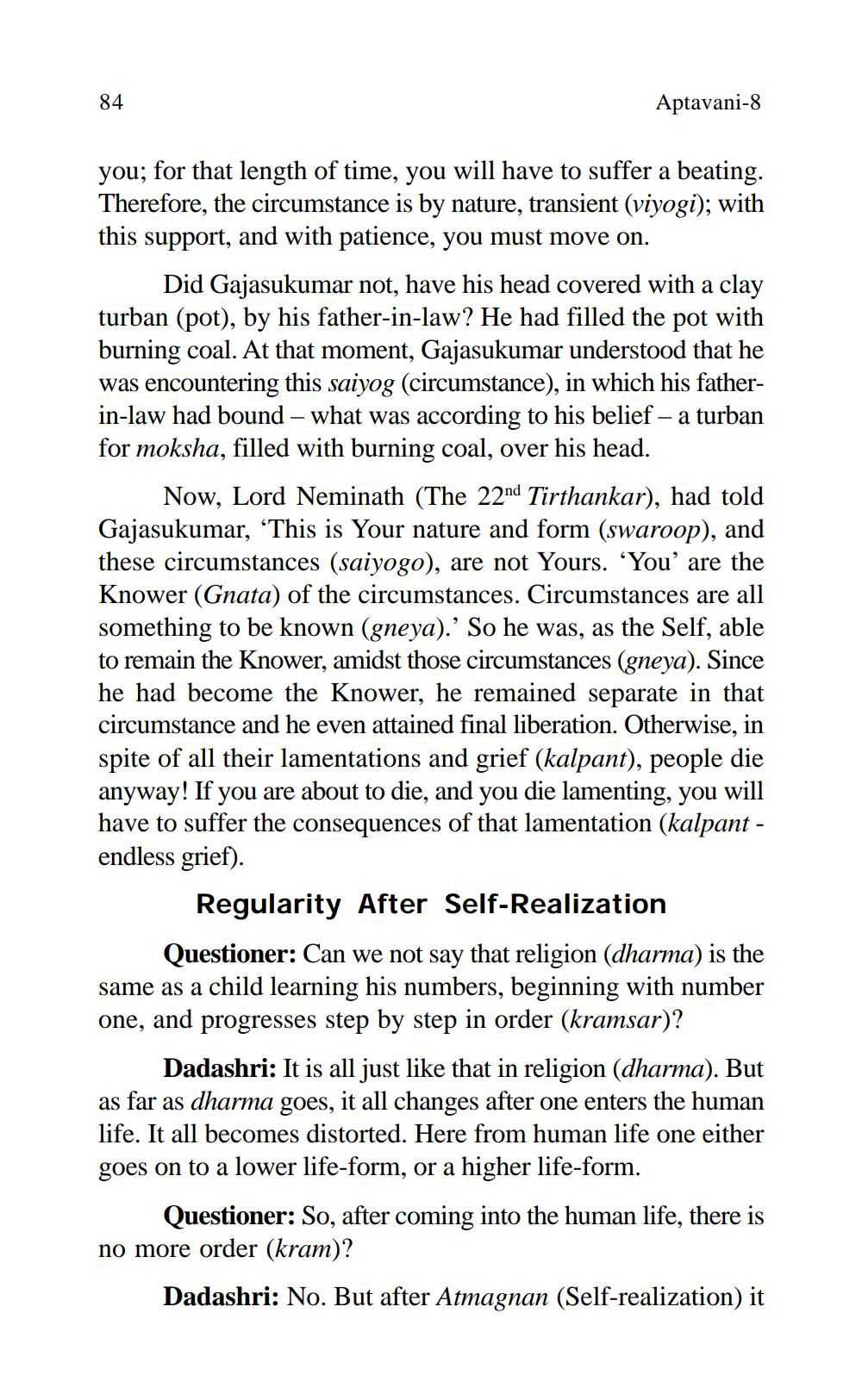________________
84
Aptavani-8
you; for that length of time, you will have to suffer a beating. Therefore, the circumstance is by nature, transient (viyogi); with this support, and with patience, you must move on.
Did Gajasukumar not, have his head covered with a clay turban (pot), by his father-in-law? He had filled the pot with burning coal. At that moment, Gajasukumar understood that he was encountering this saiyog (circumstance), in which his fatherin-law had bound – what was according to his belief – a turban for moksha, filled with burning coal, over his head.
Now, Lord Neminath (The 22nd Tirthankar), had told Gajasukumar, “This is Your nature and form (swaroop), and these circumstances (saiyogo), are not Yours. “You' are the Knower (Gnata) of the circumstances. Circumstances are all something to be known (gneya).' So he was, as the Self, able to remain the Knower, amidst those circumstances (gneya). Since he had become the Knower, he remained separate in that circumstance and he even attained final liberation. Otherwise, in spite of all their lamentations and grief (kalpant), people die anyway! If you are about to die, and you die lamenting, you will have to suffer the consequences of that lamentation (kalpant - endless grief).
Regularity After Self-Realization
Questioner: Can we not say that religion (dharma) is the same as a child learning his numbers, beginning with number one, and progresses step by step in order (kramsar)?
Dadashri: It is all just like that in religion (dharma). But as far as dharma goes, it all changes after one enters the human life. It all becomes distorted. Here from human life one either goes on to a lower life-form, or a higher life-form.
Questioner: So, after coming into the human life, there is no more order (kram)?
Dadashri: No. But after Atmagnan (Self-realization) it




